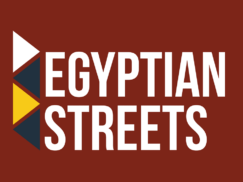UPDATES TO KAFALA
The definitive place to get the latest updates on Kafala.
AMMAN, Aug 20 (Thomson Reuters Foundation) - Thousands of migrants workers in Lebanon are desperate to return home as a coronavirus lockdown began this week, adding to woes caused by a financial crisis and this month’s port blast that wrecked swathes of the capital Beirut.
Women from Ghana, Nigeria, Sierra Leone and The Gambia are among those trapped by kafala system
Thousands of Bangladeshi migrant workers in Lebanon are passing days in immense hardship since the Gulf nation plunged into economic crisis last year, which driven most of them into unemployment.
On the 4th of August 2020, the world was left speechless after a devastating explosion shook the busy port of Beirut’s city centre. The destruction caused by the blast spanned across a 10-kilometre radius and killed at least 200 people injuring a further 5,000 whilst leaving over 300,000 citizens homeless. Amongst the citizens are those forgotten domestic workers with nowhere to escape and no money to sustain themselves, their situation remains worrying and unknown.
One segment of society for which hardship predates the disastrous blast is the county’s migrant community, specifically African domestic workers. According to Human Rights Watch (HRW), Lebanon has approximately 250,000 migrant domestic workers, the majority of whom are women from African and South East Asian countries.
The government says there might be delays of up to one week in the issuance of emergency travel papers to Kenyans stranded in Lebanon.
Latitude Adjustment Podcast co-hosts Laila Mokhiber and Eric Maddox facilitated this panel discussion with guests in Beirut, Kuwait, and India, to discuss the conditions of migrant workers under the infamous Kafala system.
On Monday, the Lebanese government resigned after coming under pressure from protesters who took over several ministries the weekend before. France’s Macron and other imperial powers are now trying to save the Lebanese regime by offering millions of euros.
This week, a group of women staged a sit-in outside the Consulate of Kenya in Beirut. There were about 30 of them, activists said, all domestic workers who had lost their jobs and homes in last week’s blast.
The COVID-19 pandemic is exposing and exacerbating gender inequalities around the world. We are sharing insights from an Equality Now expert about how women’s and girls’ lives are being affected by the pandemic and what can be done to address the challenges.











